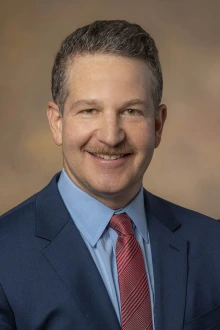$1.9M Grant to Boost Behavioral Health Care Providers in Rural, Medically Underserved Communities
A new program will train psychiatric mental health nurse practitioner students and psychology interns in real-world integrated health care settings.

A new program jointly run by the College of Nursing and College of Medicine – Tucson will train psychiatric nurse practitioner doctoral students together with psychology doctoral interns to prepare them to provide integrated health care in rural and medically underserved areas.
A new University of Arizona Health Sciences program will increase the number of trained, licensed behavioral health professionals available to provide care in rural, border and medically underserved communities in Arizona.

Sara Edmund, DNP, RN, FNP-C, PMHNP-BC, is Clinical Assistant Professor at the UArizona College of Nursing
The program will be jointly managed by UArizona College of Nursing Clinical Assistant Professor Sara Edmund, DNP, RN, FNP-C, PMHNP-BC, and Jordan F. Karp, MD, professor and chair of the College of Medicine – Tucson’s Department of Psychiatry.
“This program will have a tremendous impact on the preparation of mental health professionals working in community clinical settings,” Dr. Edmund said. “The synergistic approach in training psychiatric nurse practitioner doctoral students together with psychology doctoral interns will prepare them to provide integrated care within teams. In doing so, it leverages the expertise of the College of Nursing and the College of Medicine – Tucson in our shared missions.”
Each cohort will experience 12-month longitudinal tracks that align with the purpose of the program and the trainee’s professional interests.

Jordan F. Karp, MD, is professor and chair of the College of Medicine – Tucson’s Department of Psychiatry.
For each track, trainees will be integrated into the partner site’s care team to learn best practices in multidisciplinary care. Focus areas at the partner sites include child and adolescent mental health, rural and underserved areas, substance use, and late-life mental health. With the current and anticipated effects of the COVID-19 pandemic in mind, training in telehealth will be prioritized.
“There is a great need to respond to the paucity of health care providers prepared to care for those with mental illness in Arizona and nationally,” said UArizona College of Nursing Dean Ki Moore, PhD, RN, FAAN. “The Behavioral Health Workforce Education and Training program will serve as a major education and training platform for a cohort of psychiatric mental health nurse practitioners and PhD-level psychologists who are committed to training in underserved and culturally diverse areas with high levels of poverty, substance use, adverse childhood experiences and an alarming increase in suicides compared to 2019.”
Contact
Jason Gelt
520-626-2742
jasongelt@email.arizona.edu
Jamie Manser
520-874-414
jlmanser@psychiatry.arizona.edu

